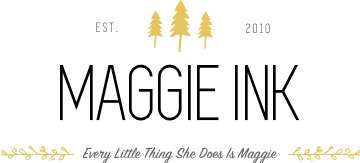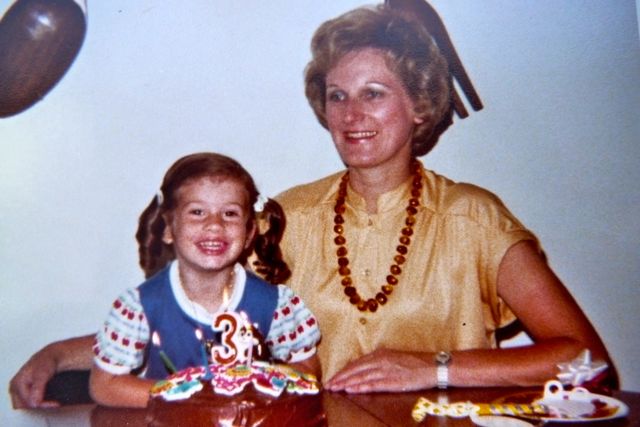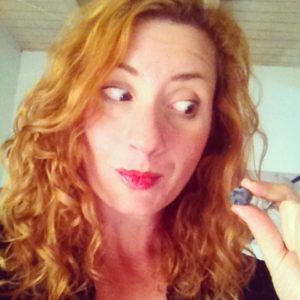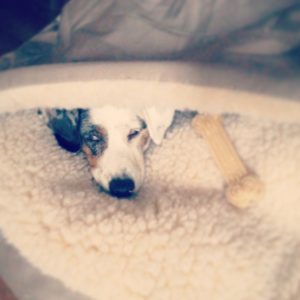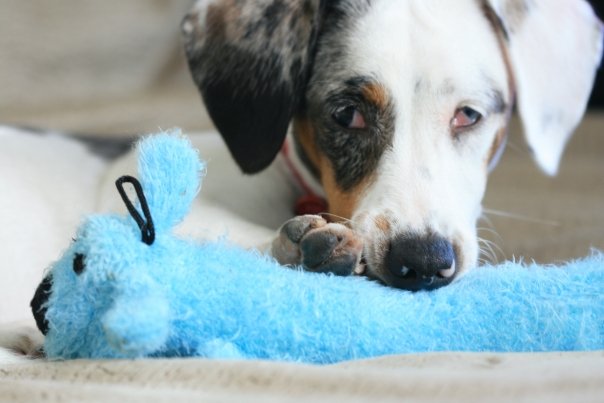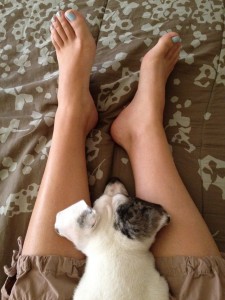Recently The Husband had to have a serious talk with me.
“You’re a pregnant woman,” he said. “You can start acting like one.”
So we went out and bought a few things: One maternity dress. One maternity T-shirt. One pair of maternity jeans.
But transforming a closet is the easy part. Allowing myself to believe I’m pregnant — after suffering a miscarriage several months ago — is another thing.
It’s been a tough journey to even get to this point. I spent the entirety of 2013 trying to get pregnant, being pregnant, losing a baby, trying to recover emotionally and physically, suffering a chemical pregnancy (a very early miscarriage), and now, finally, being pregnant again. Maybe successfully.

That’s a heart that I’m making with my hands, not an arrow to show where the baby will eventually emerge.
The first time, I was excited. I made plans, made a list of names, made an entire nursery in my head. Then I took belly photos to document every step of the way. I posed with fruit that corresponded with the size of the baby that week. We never made it past blueberry.
This time, I was too reluctant, too superstitious to do any of that, but The Husband nudged me in the direction of hope anyway. He held his hand to my belly, and he talked to the baby. He insisted on buying a body pillow to help me sleep through achy nights. He told me that if sadness comes, I can be sad then; there’s no good reason to not be happy today, in this moment, celebrating the present.
What does it mean to be happy? It means forgetting, for even the tiniest sliver of time, that sadness might follow. And that’s incredibly difficult to do after a loss. I feel weak and out of breath, like I can barely outrun my grief.
On my expected due date for the baby that never made it past blueberry, I had another ultrasound: A squirt of cold gel on my belly; the firm pressure of machine on skin; long flickers and blips on the monitor. Then the waves of grey cleared, and there he was — a baby as a big as a peach. He kicked his legs, rolled around, flipped until he was looking right at the ultrasound screen. His heartbeat sounded like a galloping horse.
“Hi baby!” said the sonographer.
“Hi baby,” I swallowed a sob and waved to the screen.
For the first time in months, I realized I might actually become a mother, and I was happy. Not the kind of happy that needed to be caught and extinguished before it turned into hope. Just happy.
That was about a week ago. Now that I feel slightly more comfortable in this role of a pregnant woman, here’s what’s been going on with me:
Weight gained: 2 pounds? 3 pounds? 5 pounds? Who knows? I’ve had enough body issues in the past that I don’t need to be stepping on a scale every day.
I know I gained some weight from grief eating after the pregnancy loss — I felt like my body betrayed me, so I wasn’t very kind to it in return — and that weight was still around when I got pregnant again. It’s not ideal to be carrying around a few extra pounds, but I can deal with it and I know it’s not permanent.
At my doctor’s visit the other day, she congratulated me for maintaining a healthy weight during the first trimester (“And during the holidays too!” she said), and that’s what really matters. Also, I’m pretty sure that whatever I’ve gained is all boob. Seriously. These things are like the Grinch’s heart — this Christmas they grew three sizes.

One time in high school, this kid Patrick said I was a pirate’s dream — a sunken chest. That is no longer the case.
Food: During the first 10 weeks or so, my appetite was insatiable. First I craved sauerkraut, soysage and spicy mustard. This makes sense, as my mom was German and that is the food of my people. Then I started craving potatoes of every size/shape/recipe, and I adopted a diet that I dubbed “No carb left behind.”
What I didn’t crave at all were real vegetables, and that made me feel guilty. Typically I go through 2-3 bunches of kale per week, and suddenly I had a complete aversion to anything green and/or leafy. The past week or so has been better, and I’ve been sneaking handfuls of chard into every food possible.
I also think I’m past the crazed, arm-gnawing nights of “IF I DON’T EAT FALAFEL RIGHT NOW I WILL DIE.” For a while anyway. Instead I have been cooking sensible meals and eating them at normal human meal times.
Morning sickness: Nope. (I realize I’m one of the lucky ones.)
Energy: From weeks 5-9, I was a big, tired lump. I lived the life of my cat — I only woke up long enough to eat and then I went back to sleep. My bones ached, and I was bleary-headed all the time. It was not ideal, especially since I had to spend 10 days at grad school residency. I barely remember any of my workshops or lectures.
The layer of fog feels like it’s lifting, though. I’m slightly more aware of the world around me, but I still take epic naps every afternoon. I’m also back to exercising — walking, riding my bike, yoga, pilates. The Husband and I even hiked to the Hollywood sign on Christmas.
Clothes: Still wearing all my regular clothes, but with long-ass scarves to cover all that boob/belly action I have going on.
Husband: Ridiculously excited. He downloaded an app that gives a daily play-by-play of everything happening inside my uterus, and he reads it to me each day. So far he has accompanied me to every doctor visit and has held my hand throughout it all … except at the most recent ultrasound, when he wanted to record the baby on his iPhone and his hand was shaking so hard that he dropped the phone on my neck.
Baby’s sex: We don’t know yet. But since baby has been sucking the very life force from me, I’m guessing boy.
Expected due date: July 5, 2014. A little firecracker.
